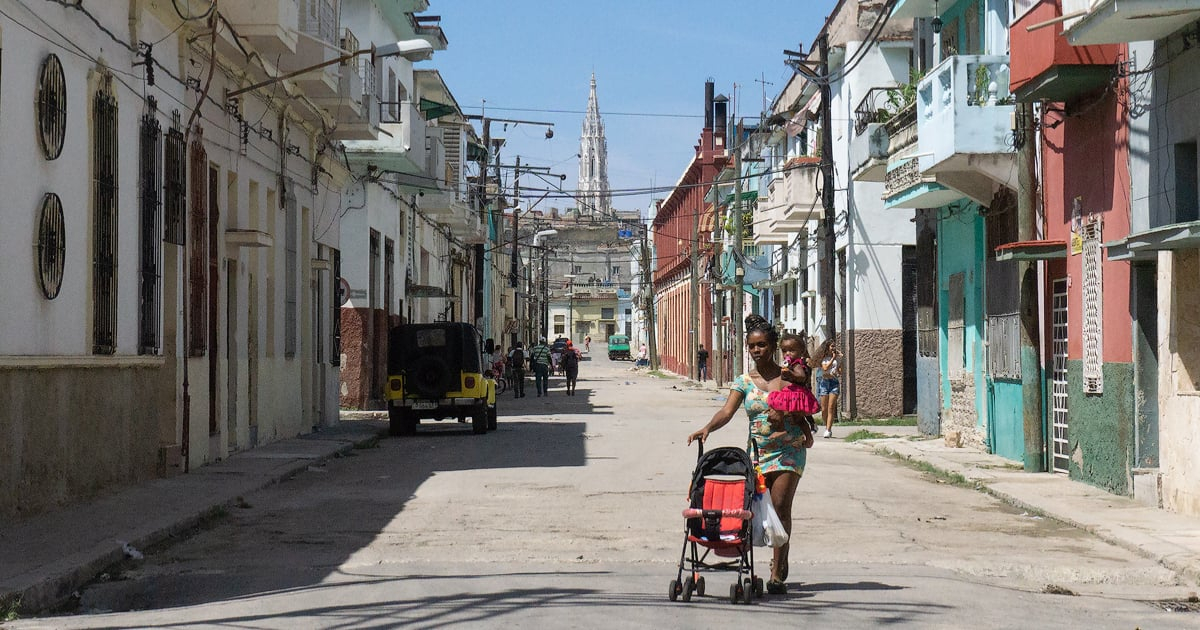
In the midst of the worst migration crisis in the history of the island, the Cuban regime has attempted to manipulate the alarming figures of demographic depletion and phenomena as concerning as the feminization of emigration, revealed the Doctor in Economic Sciences and Demography, Juan Carlos Albizu-Campos Espiñeira.
In an extensive interview with the independent magazine El Estornudo, the expert stated that Cuba lost 18% of its population between 2022 and 2023, a disturbing figure that many suspected but did not dare to confirm; and which the regime finally had to acknowledge last week.
Albizu-Campos –whose analysis concluded that there were only 9.4 million people on the island at the end of 2023– points out that an anonymous source confirmed that the state National Office of Statistics and Information (ONEI) was bothered by their calculations.
The researcher argues that the ONEI manipulates demographic figures to keep the official population above 11 million inhabitants until the 2025 census, following a policy of "not giving weapons to the enemy."
This is done by overestimating the population aged 0 to 15 years and underestimating the emigration figures, he explained.
Another phenomenon it highlights is the feminization of emigration, a fact that the Cuban government still does not acknowledge.
"They haven't recognized everything, and they've even lied. For example, the ONEI said that there is a gender parity in emigration, when the reality is that, according to the International Migrant Stock from the United Nations, 56.6 percent of that emigration is women," expressed the researcher.
In this regard, it explains that the authorities are trying to hide the serious issue of the feminization of emigration and that out of the total, 79.5 percent are women of reproductive age and economically active, aged between 15 and 59 years.
This indicates that "in Cuba, a process of demographic emptying is occurring. And if these issues continue to be covered up, the authorities will never become aware of the real behavior patterns of the population or the most urgent problems in the country," emphasizes Albizu-Campos Espiñeira.
Albizu-Campos, recognized with several national awards from the Academy of Sciences of Cuba, agrees that the drastic population decrease is due to a multifactorial crisis marked by the increase in child poverty, a decline in life expectancy, a rise in maternal mortality, and massive migration.
But he adds that it is also the result "of a set of unresolved crises that have been overlapping" and that are generating an "eruption."
These started as early as the 1960s, with the crisis of the budget financing model that lasted from 1968 to 1974, and continued with the stagnation of the economic calculation model, known as the period of "rectification of errors" (1985-1990), it mentions.
It adds that the previously mentioned period was followed by the so-called "Special Period in Times of Peace" (1991-1995); the disintegration of the sugar sector that began in 2022; and a few others, including the combined crisis of the Covid-19 pandemic, the country's lockdown, and the "Economic Ordering" since 2020.
It states that the so-called Tarea Ordenamiento, far from solving the financial problems of the country, resulted in extraordinary inflation and an unconvertible economy, dependent on the import of foreign currency.
In the interview, Albizu-Campos Espiñeira points out that the decrease in birth rates and the increase in emigration reflect a widespread hopelessness on the island: In 2024, Cuba recorded 34,648 births up to July 11, a total of 8,157 fewer (20%) than in the same period of 2023, according to official reports.
It also mentions estimates from the UN, according to which by 2100 there will be just over 5.5 million people living in Cuba.
The expert concludes that if the causes of these crises are not addressed with transparency and structural reforms, the Cuban authorities will not be able to understand the behavior patterns of the population or the most pressing issues in the country.
"Emigration in Cuba has reached alarming levels, with a significant feminization and manipulation of demographic data by the regime. Learn more about this phenomenon and the figures revealed by expert Juan Carlos Albizu-Campos."
What do you think?
COMMENTFiled under: